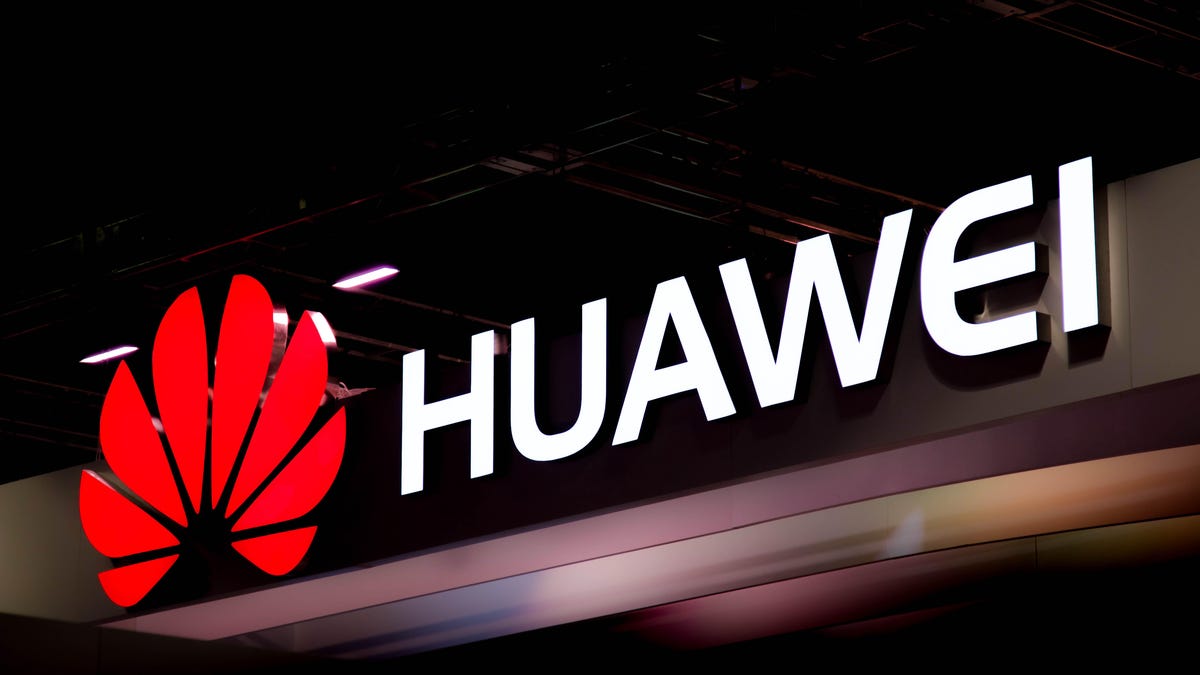Huawei says Trump's ban will hurt US 5G deployment
The Chinese networking giant sees a high cost to an executive order that would limit foreign involvement in communications networks.

An executive order signed by Trump on Wednesday effectively bans China-based Huawei.
An executive order from President Donald Trump that effectively bans Huawei will leave the US "lagging behind in 5G deployment," the Chinese networking giant reportedly said.
The response, reported by Reuters, came after Trump signed an executive order that declares foreign adversary threats to communications networks, technology and services a national emergency.
Trump's order, called Securing the Information and Communications Technology and Services Supply Chain, puts limits on foreign involvement in the nation's carrier networks. It comes on the heels of rumors that Trump would be banning Huawei this week.
"The executive order prohibits transactions that involve information and communications technology or services designed, developed, manufactured, or supplied by persons owned by, controlled by, or subject to the jurisdiction or direction of a foreign adversary whenever the secretary of commerce determines that a transaction would pose a threat to national security," the Department of Commerce said in a statement.
5G is widely seen as a game-changing technology that's expected to dramatically boost the speed, coverage and responsiveness of wireless networks. It can run between 10 and 100 times faster than a typical cellular connection today.
Huawei, which has repeatedly denied that its products pose a security threat, said restricting it from doing business in the US would force the country to use "inferior yet more expensive alternatives" and ultimately hurt the rollout of the 5G next-generation cellular network in the US and China, according to Reuters.
China intends to take "the necessary measures to resolutely safeguard the legitimate rights of Chinese firms," a commerce ministry spokesperson told reporters.
The order follows a 10-count indictment by the US government alleging that Huawei conspired to steal intellectual property from T-Mobile and subsequently obstructed justice, in addition to a separate 13-count indictment against the company and its CFO, Meng Wanzhou.
The Trump administration has also reportedly been leaning on allies to ban Huawei because of the company's alleged ties to the Chinese government.
The Australian government banned Huawei in August.
Next steps for the US government
The Department of Commerce will issue regulations to implement Trump's order within 150 days.
In judging whether a foreign company's involvement is a threat to national security, the secretary of commerce will consult with the attorney general; the secretaries of treasury, state, defense and homeland security; the US trade representative; the director of national intelligence; the administrator of general services; the chairman of the Federal Communications Commission; and the heads of other appropriate agencies.
All of the above will report to the president in a year on whether the order's actions are sufficient and should continue.
Before then, the secretary of commerce is required to submit a report to Congress on the national emergency cited in the order, with the director of national intelligence to produce an assessment within 40 days. The secretary of Homeland Security is also required to prepare a written evaluation of hardware, software, and services vulnerabilities that could threaten US national security within 80 days.
FCC Chairman Ajit Pai welcomed the move, pointing to threats from "certain foreign companies' equipment and services."
"Protecting America's communications networks is vital to our national, economic, and personal security," Pai said. "This is a significant step toward securing America's networks."
First published at 1:30 p.m. PT on May 15.
Updated May 16 at 6:29 a.m. PT: Adds Huawei's and China's reported responses.



